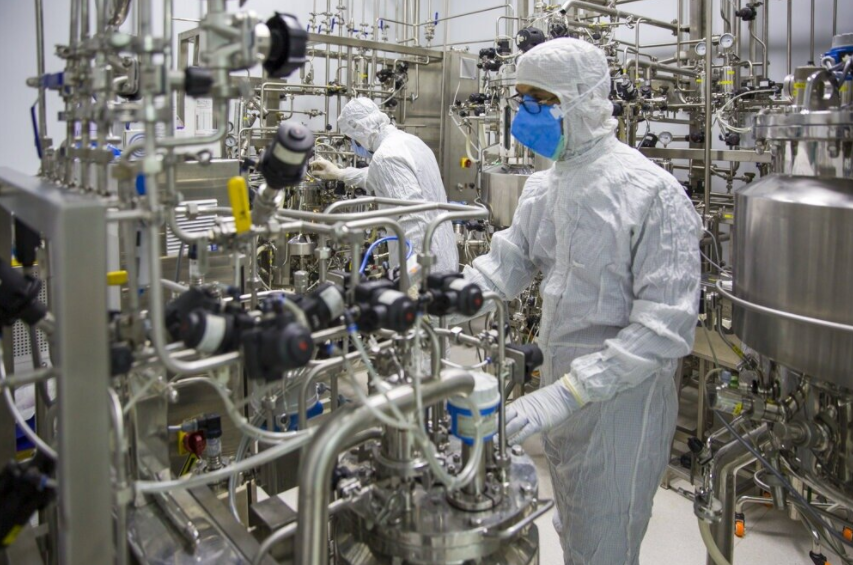March 26, 2021

The Islamic Republic has now unveiled three different vaccines developed within Iran, but says the first won’t be available to the public until June, if it passes all its tests.
Despite the fact that this date will put Iran well behind many other countries, Hassan Jalili, head of one of the vaccine development teams, predicted that Iran would be the first country in the world to vaccinate its entire population before the end of the year.
Iran began vaccinations with the Russian vaccine Sputnik V in February. Some Chinese Sinopharm vaccine has also arrived and is now being used, as is a shipment of AstraZeneca vaccine from India. A total of 1,260,000 foreign doses arrived before Now Ruz. The government is not, however, giving a running tally on how many people have been vaccinated, unlike many other countries. However, the daily Hamshahri reported that as of March 16 only 60,000 Iranians had yet received even a single shot.
Furthermore, the doses that have arrived are far fewer in number than Iran has ordered. India has halted exports because of the surge in infections there; the government wants all the available vaccine used in the country. Russian deliveries are way behind the schedule promised, reportedly because of a shortage of raw materials.
The groups able to obtain vaccinations now are healthcare workers in hospital wards treating the coronavirus, nursing home residents, people with underlying medical conditions and those over 65.
Kianoush Jahanpur, the head of the Health Ministry’s information office, said Iran would need to inoculate 56 million people or two-thirds of its population to achieve “herd immunity.” According to PressTV, Jahanpur declined to predict when Iran would reach that target.
He said Iran is ordering some 16.8 million doses of vaccines to be supplied through COVAX, a project of the World Health Organization (WHO). Those will be vaccines known worldwide, including 4.2 million doses of the AstraZeneca vaccine that Supreme Leader Ali Khamenehi has banned because it was developed in part in Britain. But Iran will be getting AstraZeneca vaccines made in India and South Korea, and is describing them as Indian and Korean vaccines.
In addition to the 16.8 million doses from WHO, Health Minister Saeed Namaki said Iran will import another 25 million doses from abroad, such as China and Russia, and produce 25 million doses of Iranian-developed vaccines.
The first Iranian vaccine, and the one furthest along in the testing phase, is Cov-Iran Barekat. But Cov-Iran Barekat has still only finished the first of three phases of human testing.
Iran is building a plant in Alborz province to manufacture it and expects it to reach a capacity of 15 million to 20 million doses per month at some point, which conflicts with Namaki’s assertion that Iran will make 25 million doses in total.
Meanwhile, the Iranian media continue telling the Iranian public how foreigners taking foreign-made vaccines have been dying like flies. Almost every story about someone dying after taking a vaccine is carried in the Iranian media, in what appears to be a directive from the Iranian censors.
In an interview with Politico, Foreign Minister Mohammad-Javad Zarif said Supreme Leader Ali Khamenehi did not initiate the ban on British and American vaccines. Zarif said people in the medical community sought the ban because they are genetically modified vaccines that are untrusted for that reason.
The first two American vaccines are called mRNA, which is a technology not previously used. But the EU, which firmly opposes genetically modified foods, does not ban mRNA vaccines. And Khamenehi said nothing about genetic modification in his announcement of the ban. He said he was banning the British and American vaccines because their manufacturers might be trying to test them on Iranians. But the testing was completed last year, long before Khamenehi spoke. Furthermore, Iran has volunteered to round up 100,000 Iranian volunteers to test a Cuban-designed vaccine.
